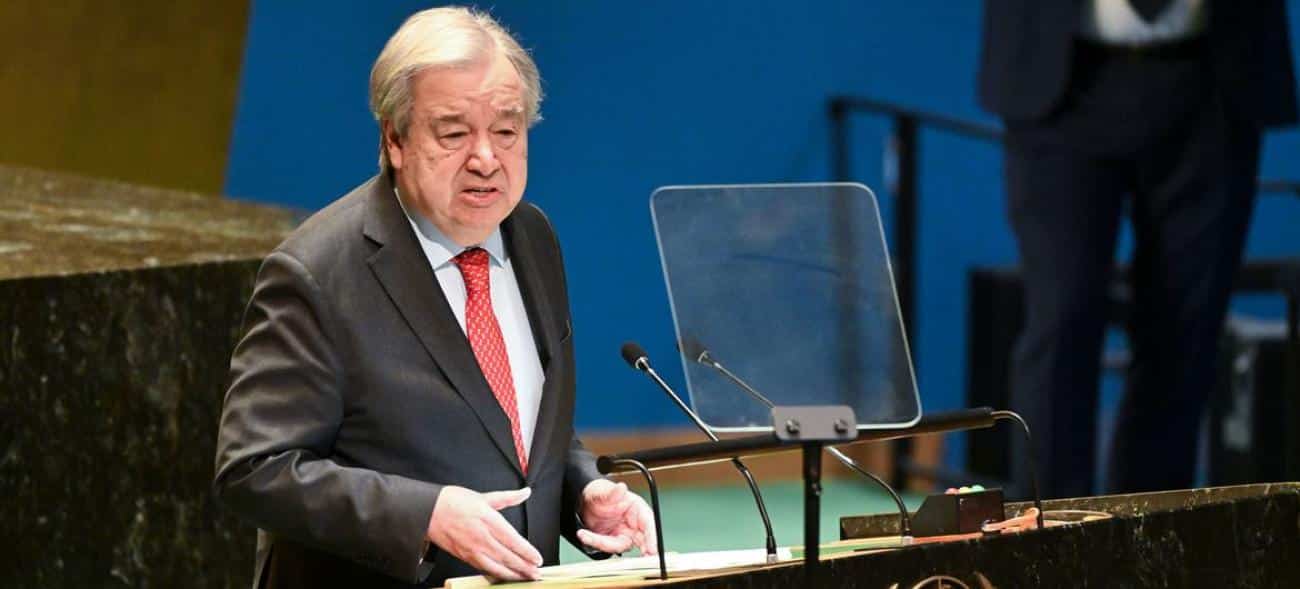Speakers Call for Enhanced Action and Accountability in Protection Efforts

Regional cooperation is becoming increasingly vital for effective ocean governance, as leaders from island nations, least developed countries, and coastal states gathered at the Ocean Conference in Nice, France. They called for urgent action, enhanced accountability, and climate-resilient strategies to safeguard shared marine resources and the communities that rely on them. The discussions highlighted the importance of collaboration at regional and subregional levels to address the complexities of ocean management and the challenges posed by climate change.
Importance of Regional Cooperation
The eighth panel discussion at the Ocean Conference centered on promoting regional cooperation, moderated by Cynthia Barzuna, Deputy Director of the Ocean Program at the World Resources Institute. Wesley Simina, President of the Federated States of Micronesia, emphasized the intricate nature of ocean governance, which is often complicated by overlapping jurisdictions and competing interests. He urged the international community to recommit to sustainable sharing of marine resources. Simina pointed to regional tuna commissions as essential platforms for managing a significant global seafood commodity, valued at over $11 billion in 2024. He likened these commissions to “living reefs of cooperation,” where diverse members collaborate to maintain not just tuna stocks but the overall health of ocean ecosystems.
As climate change alters tuna migration patterns, Simina noted that static quotas and fixed boundaries are no longer adequate. He stressed the need for regional strategies that can adapt to climate-driven changes in tuna distribution. Such cooperation is crucial for developing informed responses that protect coastal communities and ensure food security for those dependent on healthy tuna populations. All five Tuna Commissions have now integrated climate change mandates into their core research agendas, reflecting a growing commitment to adaptive fisheries management.
Addressing Capacity Constraints
Rabab Fatima, High Representative for the Least Developed Countries, Landlocked Developing Countries, and Small Island Developing States, highlighted the power of regional solidarity in overcoming capacity constraints. She noted that for the 44 least developed countries, regional cooperation can help bridge critical gaps in science, technology, finance, and governance. Fatima pointed out that regional frameworks have facilitated collaboration on marine resource management and enhanced preparedness for coastal disasters.
She also mentioned the upcoming Third UN Conference on Landlocked Developing Countries in Turkmenistan as a significant opportunity to promote cooperation in ocean use among various nations. Fatima emphasized that regional research alliances are improving data access and that regional networks are enhancing community preparedness. However, she cautioned that many critical mechanisms remain underfunded and understaffed, urging for formalized cross-regional dialogue. She expressed optimism about the potential for interregional knowledge exchanges, where small island developing states can share innovative strategies.
Challenges Facing Ocean Governance
Enrique Ochoa Martínez, Undersecretary for Multilateral Affairs and Human Rights of Mexico, addressed the numerous challenges confronting the oceans, including overfishing, climate change, and pollution. He underscored the importance of frameworks like the 1982 United Nations Convention on the Law of the Sea and the Agreement on Marine Biological Diversity of Areas Beyond National Jurisdiction. These frameworks provide a foundation for coordinated actions, strengthened governance, and accountability.
Ochoa Martínez emphasized that regional and subregional cooperation is essential for translating high-level ambitions into practical actions. He referred to the Great Pacific Garbage Patch, which spans over 1.6 million square kilometers, as a stark reminder that marine waste is a global issue. He called for enhanced accountability, aligned metrics, and integrated monitoring systems to improve coherence and accelerate implementation. Ochoa Martínez concluded by stressing the necessity of political will and partnerships to address the existing gaps and challenges in ocean governance.
Future Directions for Ocean Governance
Filimon Manoni, Pacific Ocean Commissioner, articulated the view that the ocean is not merely a resource but a shared heritage and a lifeline for future generations. He noted that while the term “small island developing states” is commonly used, it is essential to recognize that “smallness is a state of mind.” Manoni highlighted the historical significance of Pacific peoples who have navigated these waters for fishing, trade, and exploration. He called for evolving governance systems to match the changing dynamics of ocean management.
Manoni expressed hope for the swift implementation of the Agreement under the United Nations Convention on the Law of the Sea concerning the conservation and sustainable use of marine biological diversity in areas beyond national jurisdiction. He acknowledged the challenges of uniting diverse ocean sectors and stakeholders but stressed the urgency of doing so. He warned that without proper management of areas beyond national jurisdiction, efforts within national waters would ultimately be ineffective.
Tatjana Hema from the Barcelona Convention presented the outcomes of the recent Global Meeting of the Regional Seas Conventions and Action Plans, which reaffirmed the significance of regional cooperation in addressing ocean-related challenges. The meeting, convened by the United Nations Environment Programme, emphasized the need for enhanced coordination and alignment with global frameworks to tackle issues such as climate change, marine biodiversity loss, and pollution. The panel concluded with an interactive discussion featuring representatives from member states and civil society, highlighting the collaborative spirit necessary for effective ocean governance.
Observer Voice is the one stop site for National, International news, Sports, Editor’s Choice, Art/culture contents, Quotes and much more. We also cover historical contents. Historical contents includes World History, Indian History, and what happened today. The website also covers Entertainment across the India and World.

